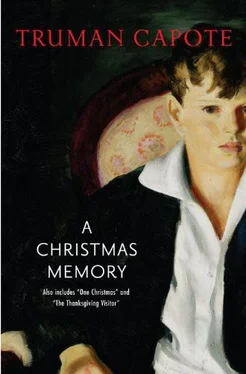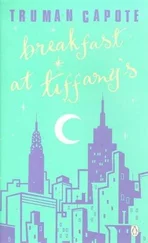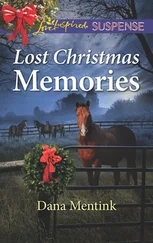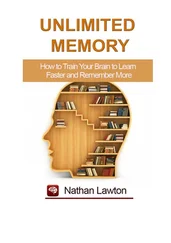This is our last Christmas together.
Life separates us. Those who Know Best decide that I belong in a military school. And so follows a miserable succession of bugle-blowing prisons, grim reveille-ridden summer camps. I have a new home too. But it doesn’t count. Home is where my friend is, and there I never go.
And there she remains, puttering around the kitchen. Alone with Queenie. Then alone. (“Buddy dear,” she writes in her wild hard-to-read script, “yesterday Jim Macy’s horse kicked Queenie bad. Be thankful she didn’t feel much. I wrapped her in a Fine Linen sheet and rode her in the buggy down to Simpson’s pasture where she can be with all her Bones…”). For a few Novembers she continues to bake her fruitcakes single-handed; not as many, but some: and, of course, she always sends me “the best of the batch.” Also, in every letter she encloses a dime wadded in toilet paper: “See a picture show and write me the story.” But gradually in her letters she tends to confuse me with her other friend, the Buddy who died in the 1880’s; more and more thirteenths are not the only days she stays in bed: a morning arrives in November, a leafless birdless coming of winter morning, when she cannot rouse herself to exclaim: “Oh my, it’s fruitcake weather!”
And when that happens, I know it. A message saying so merely confirms a piece of news some secret vein had already received, severing from me an irreplaceable part of myself, letting it loose like a kite on a broken string. That is why, walking across a school campus on this particular December morning, I keep searching the sky. As if I expected to see, rather like hearts, a lost pair of kites hurrying toward heaven.
F irst, a brief autobiographical prologue. My mother, who was exceptionally intelligent, was the most beautiful girl in Alabama. Everyone said so, and it was true; and when she was sixteen she married a twenty-eight-year-old businessman who came from a good New Orleans family. The marriage lasted a year. My mother was too young to be a mother or a wife; she was also too ambitious—she wanted to go to college and to have a career. So she left her husband; and as for what to do with me, she deposited me in the care of her large Alabama family.
Over the years, I seldom saw either of my parents. My father was occupied in New Orleans, and my mother, after graduating from college, was making a success for herself in New York. So far as I was concerned, this was not an unpleasant situation. I was happy where I was. I had many kindly relatives, aunts and uncles and cousins, particularly one cousin, an elderly, white-haired, slightly crippled woman named Sook. Miss Sook Faulk. I had other friends, but she was by far my best friend.
It was Sook who told me about Santa Claus, his flowing beard, his red suit, his jangling present-filled sled, and I believed her, just as I believed that everything was Gods will, or the Lords, as Sook always called Him. If I stubbed my toe, or fell off a horse, or caught a good-sized fish at the creek—well, good or bad, it was all the Lord’s will. And that was what Sook said when she received the frightening news from New Orleans: My father wanted me to travel there to spend Christmas with him.
I cried. I didn’t want to go. I’d never left this small, isolated Alabama town surrounded by forests and farms and rivers. I’d never gone to sleep without Sook combing her fingers through my hair and kissing me good-night. Then, too, I was afraid of strangers, and my father was a stranger. I had seen him several times, but the memory was a haze; I had no idea what he was like. But, as Sook said: “It’s the Lord’s will. And who knows, Buddy, maybe you’ll see snow.”
Snow! Until I could read myself, Sook read me many stories, and it seemed a lot of snow was in almost all of them. Drifting, dazzling fairytale flakes. It was something I dreamed about; something magical and mysterious that I wanted to see and feel and touch. Of course I never had, and neither had Sook; how could we, living in a hot place like Alabama? I don’t know why she thought I would see snow in New Orleans, for New Orleans is even hotter. Never mind. She was just trying to give me courage to make the trip.
I had a new suit. It had a card pinned to the lapel with my name and address. That was in case I got lost. You see, I had to make the trip alone. By bus. Well, everybody thought I’d be safe with my tag. Everybody but me. I was scared to death; and angry. Furious at my father, this stranger, who was forcing me to leave home and be away from Sook at Christmastime.
It was a four-hundred-mile trip, something like that. My first stop was in Mobile. I changed buses there, and rode along forever and forever through swampy lands and along seacoasts until we arrived in a loud city tinkling with trolley cars and packed with dangerous foreign-looking people.
That was New Orleans.
And suddenly, as I stepped off the bus, a man swept me in his arms, squeezed the breath out of me; he was laughing, he was crying—a tall, good-looking man, laughing and crying. He said: “Don’t you know me? Don’t you know your daddy?”
I was speechless. I didn’t say a word until at last, while we were riding along in a taxi, I asked: “Where is it?”
“Our house? It’s not far—”
“Not the house. The snow.”
“What snow?”
“I thought there would be a lot of snow.”
He looked at me strangely, but laughed. “There never has been any snow in New Orleans. Not that I heard of. But listen. Hear that thunder? It’s sure going to rain!”
I don’t know what scared me most, the thunder, the sizzling zigzags of lightning that followed it—or my father. That night, when I went to bed, it was still raining. I said my prayers and prayed that I would soon be home with Sook. I didn’t know how I could ever go to sleep without Sook to kiss me good-night. The fact was, I couldn’t go to sleep, so I began to wonder what Santa Claus would bring me. I wanted a pearl-handled knife. And a big set of jigsaw puzzles. A cowboy hat with matching lasso. And a B.B. rifle to shoot sparrows. (Years later, when I did have a B.B. gun, I shot a mockingbird and a bobwhite, and I can never forget the regret I felt, the grief; I never killed another thing, and every fish I caught I threw back into the water.) And I wanted a box of crayons. And, most of all, a radio but I knew that was impossible: I didn’t know ten people who had radios. Remember, this was the Depression, and in the Deep South houses furnished with radios or refrigerators were rare.
My father had both. He seemed to have everything—a car with a rumble seat, not to mention an old, pink pretty little house in the French Quarter with iron-lace balconies and a secret patio garden colored with flowers and cooled by a fountain shaped like a mermaid. He also had a half-dozen, I’d say full-dozen, lady friends. Like my mother, my father had not remarried; but they both had determined admirers and, willingly or not, eventually walked the path to the altar—in fact, my father walked it six times.
So you can see he must have had charm; and, indeed, he seemed to charm most people—everybody except me. That was because he embarrassed me so, always hauling me around to meet his friends, everybody from his banker to the barber who shaved him every day. And, of course, all his lady friends. And the worst part: All the time he was hugging and kissing me and bragging about me. I felt so ashamed. First of all, there was nothing to brag about. I was a real country boy. I believed in Jesus, and faithfully said my prayers. I knew Santa Claus existed. And at home in Alabama, except to go to church, I never wore shoes; winter or summer.
Читать дальше












